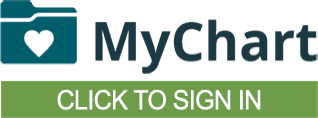Spooner Health is committed to providing you with quality healthcare along with convenient and reliable billing services, regardless of ability to pay.
About Your Hospital Bill
Our Patient Accounts Department is open for your convenience Monday - Friday, 7:30 a.m. – 5:00 p.m. You can reach us by telephone at 715-939-1601.
Payment Options:
- Pay your bill in full by cash, check or credit card (Master Card, Visa, American Express or Discover).
- If you did not have health insurance when services were received, we offer a flat discount of 10%.
Assistance With Medical Bills
We recognize that medical bills may be difficult to pay. If you are concerned that you may be unable to pay for all or part of your healthcare services, we ask that you contact our Patient Financial Counselor at 715-939-1609 Monday - Friday, 8:30 a.m.- 5 p.m. The financial counselor will work with you to determine if you qualify for the uninsured discount, an interest-free payment plan or the Financial Assistance Program. If you qualify for financial assistance, some or all of your fees may be discounted after you submit the Financial Assistance Application form (below) to our office along with the required documents. Completion of this form may enable you to receive free or reduced-cost care.
Instructions for Applying for Financial Assistance
- Download the PDF version of the Financial Assistance Application.
- Complete the application and return it (and required documentation) to the Patient Accounts Department at Spooner Health
Financial Assistance Policy
Click Here to view the Spooner Health Financial Assistance Policy
Plain Language Summary of Financial Assistance Policy
Click here to view the Spooner Health Plain Language Summary of Financial Assistance Policy
Instructions for Applying for Financial Assistance
- Download the PDF version of the Financial Assistance Application.
- Complete the application and return it (and required documentation) to the Patient Accounts Department at Spooner Health
Financial Assistance Policy
Click Here to view the Spooner Health Financial Assistance Policy
Plain Language Summary of Financial Assistance Policy
Click here to view the Spooner Health Plain Language Summary of Financial Assistance Policy
Additional Contact Information
Our insurance company representatives are available Monday - Friday from 7:30 a.m. – 5:00 p.m. Please contact our Patient Accounts Department
at 715-939-1601 for assistance.
Our Address: 1280 Chandler Drive – Spooner, WI 54801
Our Office Hours: Monday-Friday, 7:30 a.m. – 5:00 p.m.



